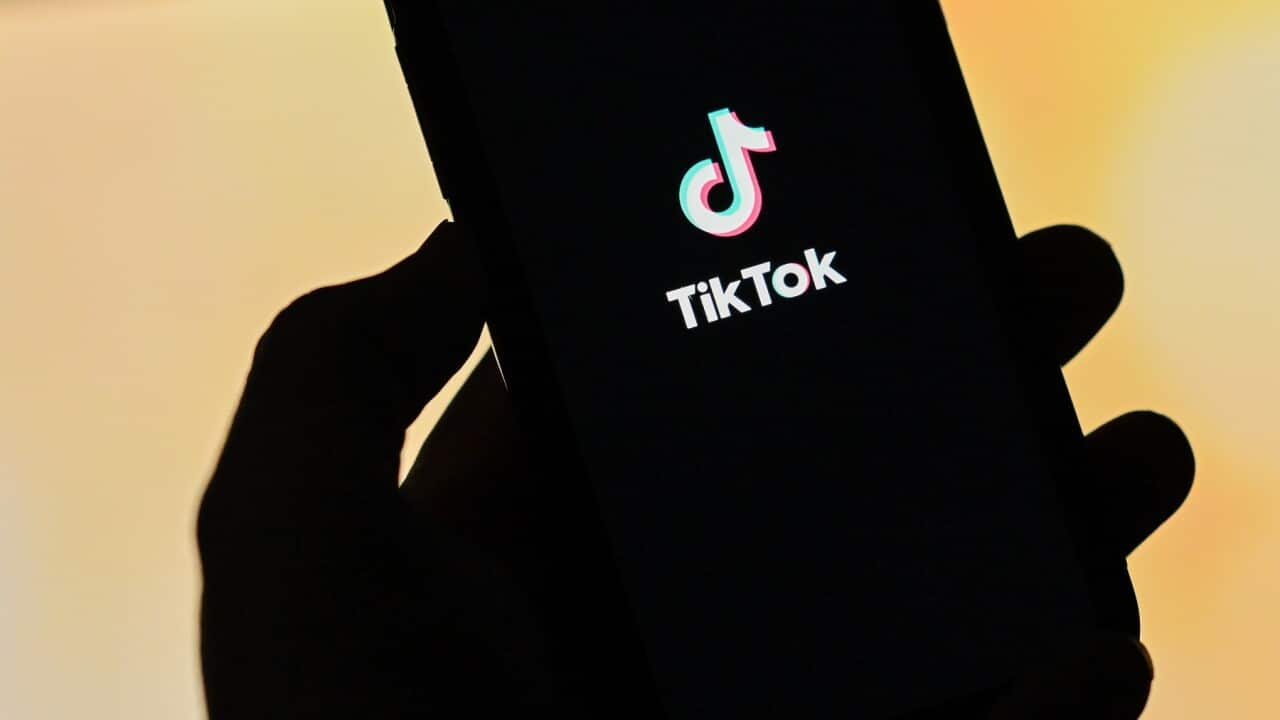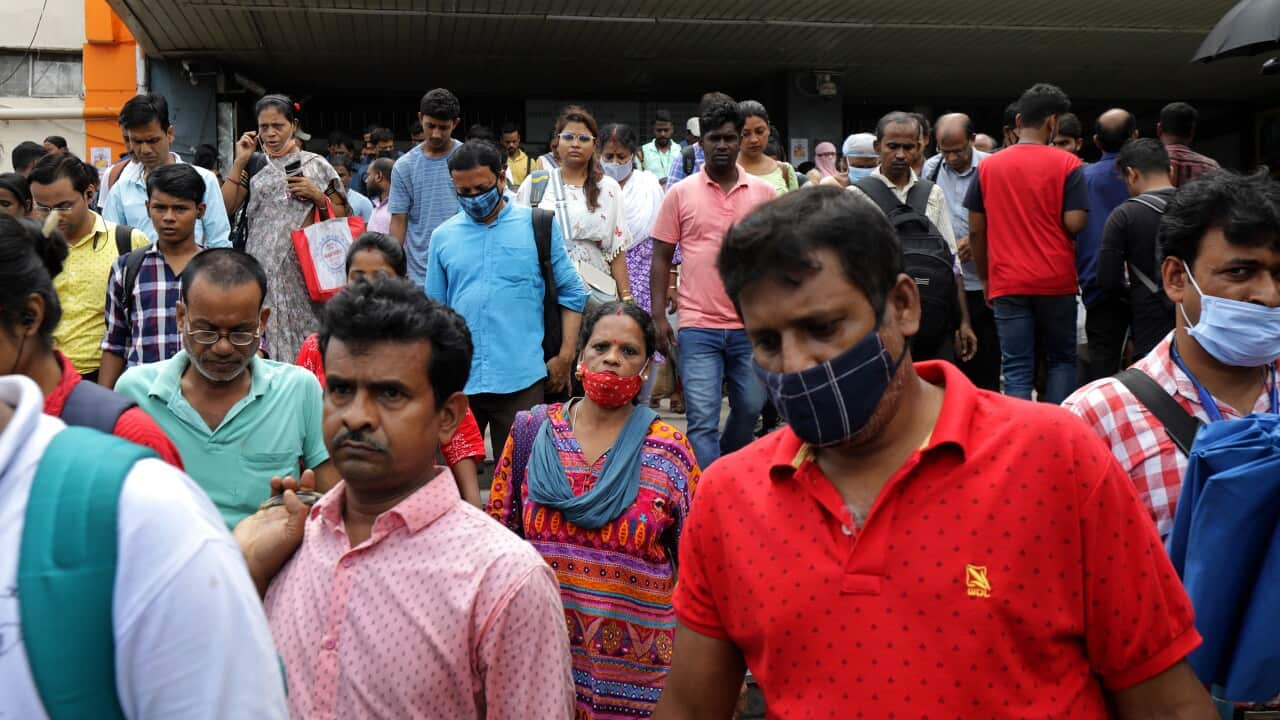KET POINTS:
- An analyst warns TikTok's pro-CCP misinformation will become more 'subtle'.
- The company denies supporting pro-CCP propaganda and censoring dissent.
- A parliamentary inquiry has heard calls to ban another Chinese-owned company, WeChat.
Public controversy around TikTok’s may mean the company no longer overtly bans critics of the Chinese Communist Party (CCP), but censorship on the platform will continue in “subtle” ways, parliament has been told.
A Senate inquiry has also heard , committed “textbook foreign interference” when .
The federal government responded to security concerns this month by , following similar moves in the US and Canada.
But speaking to a parliamentary inquiry on foreign interference, Australian Strategic Policy Institute analyst Fergus Ryan argued there was a large risk TikTok would continue to censor content in line with CCP goals.

Cyber security minister Clare O'Neil. The federal government has banned TikTok on Commonwealth-issued devices. Source: AAP / James Ross
“[But] following years of intense scrutiny, it's unlikely that TikTok will in any overt way become a conduit for pro-CCP propaganda,” he said.
“That's because any manipulation of the public political discourse on TikTok is likely to be very subtle.
“It would be trivially easy for the app to promote or demote certain political speech ... [and] tip the scales in favour of speech attacking a political candidate who is critical of the CCP, for example.”
TikTok denies allegations of suppression
Lee Hunter, TikTok Australia general manager of operations, flatly rejected the allegations.
"As proud partners of the Sydney Gay & Lesbian Mardi Gras and Sydney WorldPride, we completely disagree with claims that we suppress LGBTQI content,” he said.
“We also strongly disagree with claims that we push propaganda or censor content on behalf of the Chinese government.
“A quick search of the platform would reveal lots of content that is anti-CCP, including videos related to Tiananmen Square and the more recent shooting down of the Chinese spy balloon."

The app has over a billion users worldwide. Source: AAP / Kiichiro Sato
Mr Ryan said the company had also offered starkly different accounts when legally obliged to tell the truth.
“They have been open about the fact that TikTok user data is accessible in Beijing. … [but] it has historically proven very difficult to get that out of them in public,” he said.
, who chairs the committee, said TikTok was “rife with disinformation” backed by the CCP.
“There's content clearly produced by state-affiliated entities that says: Xinjiang is a wonderful place and we just have wonderful lives, there's nothing to see here, and that the allegations about crimes against humanity and genocide are misleading," he said.
Xianjing is home to a large Uyghur Muslim minority.
In 2022, a United Nations report found allegations that Uyghurs faced "patterns of torture, or ill-treatment, including forced medical treatment and adverse conditions of detention ... [and] individual incidents of sexual and gender-based violence" in China were "credible".
The Chinese government has denied the allegations.
Mr Ryan accepted TikTok had started to label some content as state-affiliated, but insisted that decision only came after concerted public pressure.
WeChat labelled 'worse than TikTok' as expert calls for ban
Professor Seth Kaplan from Johns Hopkins University in the US has labelled messaging app WeChat "worse than TikTok", urging the government to impose a similar ban
Even were WeChat to agree to publicly curb disinformation, Mr Kaplan warned the Australian government would not have the capacity to monitor the Chinese-language app.
"To a great extent, what goes on on TikTok is transparent, because it's in your language. What goes on WeChat is simply not transparent," he said.

Shadow home affairs minister James Paterson says pro-CCP propaganda is easily accessible on the app. Source: AAP / Mick Tsikas
"If you're [relying on the] Chinese [language for information], you're basically getting this one dominant view, or you're getting other media that are influenced by this one dominant view," he said.
"It prevents many civic activities or civil society organisations forming [and] developing. It creates tensions within the community, because only certain voices [are heard]."
Senator Paterson called on Australians to boycott WeChat in January 2022, after revelations then prime minister Scott Morrison had been locked out of his account, which had more than 70,000 followers, for months.

Scott Morrison was locked out of his WeChat account in the lead up to the federal election. Source: SBS News / SBS
Mr Ryan described the saga as a “clear” indication that decisions made by Chinese tech companies were political, agreeing it constituted “textbook foreign interference”.
“You would expect that in an instance like that, where the leader of another country had his or her account taken down, that the company would at least be responsive,” he said.
“In my view, the CCP wanted to embarrass the prime minister at the time.”











